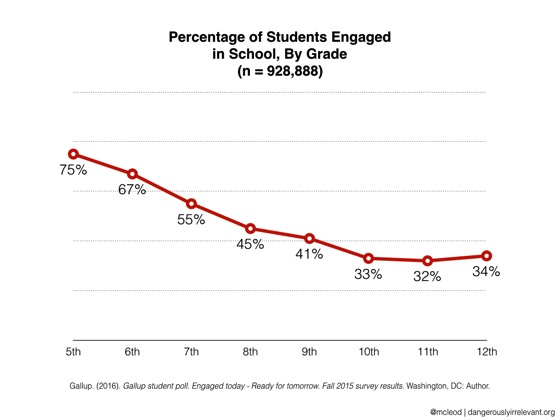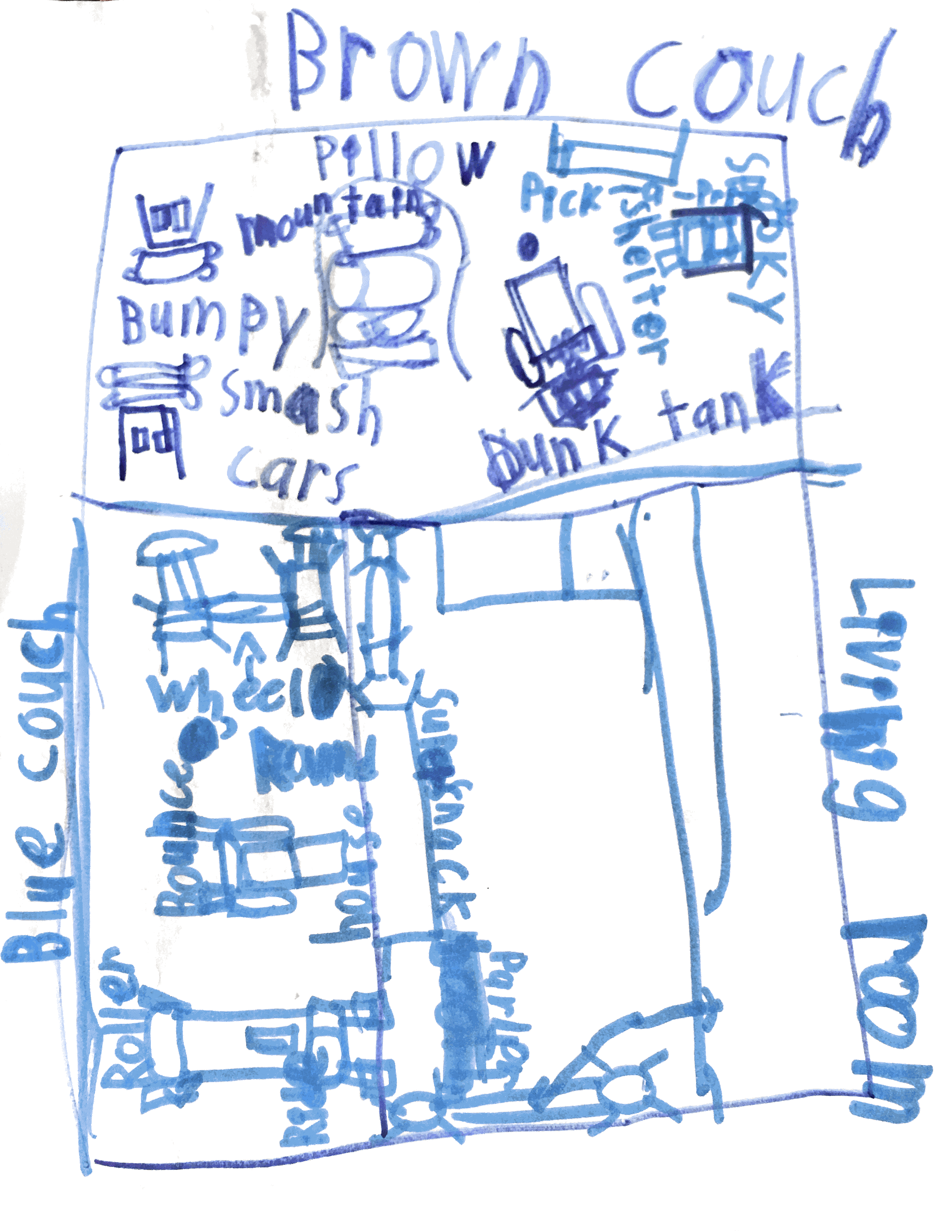In the economy of action, effort is a cost, and the acquisition of skill is driven by the balance of benefits and costs.
-Daniel Kahneman, Thinking, Fast and Slow

School conditions matter for student achievement, new research confirms by Alex Zimmerman (Chalkbeat New York, March 24, 2016)
Matthew Kraft, an economics and education professor at Brown University, studied what conditions positively impacted student learning in schools. Kraft and his team found four attributes identified in schools that experienced consistently high achievement:
- School safety and order
- Leadership and professional development
- High academic expectations
- Teacher relationships and collaboration
Specific professional learning offerings for teachers include one-to-one instructional coaching and school leadership opportunities. Teacher retention and higher test scores have been the result of these efforts. Notes one of the teachers at a school participating in the study:
The teachers are more experienced, they’re more experienced with our particular population, [and] the curriculum gets stronger each year. Our retention of teachers has gone through the roof compared with prior years.
Lifeworthy Learning by David N. Perkins (Educational Leadership, March 2016)
Perkins, education professor at Harvard Graduate School of Education, highlights the always increasing repository of knowledge in our world. He advocates for teachers to take a different approach when designing curriculum for our students. This starts by asking the question, “What learning really matters for today’s learners?”
Educators can start reimagining instruction by asking ourselves what learning we experienced in our school careers that truly mattered in our lives. This reflection can lead to finding topics and themes from our current curriculum and assessing how well they fit within this mindset of lifeworthy learning. Four tenets of big understandings – opportunity, insight, action, and ethics – can serve as gatekeepers in this process.
The author also encourages us to rethink past topics of instruction and decide how necessary they truly are. Mitosis and quadratic equations are two examples mentioned that may be irrelevant for many of our learners. Perkins closes this piece of identifying three national agendas (achievement, information, expertise) that may have had too much importance placed upon them.
For more on this topic, check out my review of Perkin’s book Future Wise for MiddleWeb.
The biggest indictment of our schools is not their failure to raise test scores by Scott McLeod (Dangerously Irrelevant, March 16, 2016)
In this brief post, Scott McLeod shares a visual representation (below) of the most recent Gallup poll with regard to student engagement in schools.

The graph says it all. McLeod adds a brief commentary about these results.
The biggest indictment of our schools is not their failure to raise test scores above some politically-determined line of ‘proficiency.’ It’s that – day in and day out – they routinely ignore the fact that our children are bored, disengaged, and disempowered. We’ve known this forever, but we have yet to really care about it in a way that would drive substantive changes in practice. The disenfranchisement of our youth continues to happen in the very institutions that are allegedly preparing them to be ‘life long learners.’
Why I Don’t Like Play-Based Learning (Happiness is Here blog, March 20, 2016)
A blogger, who goes by Sara, takes issue with people’s perception of what play-based learning should be. She believes this approach should not be adult-directed. Play-based learning should allow for the students to explore their passions and interests without an outcome necessarily in mind. “Play is not something you do to a child. If you have an agenda, if you are requiring them to do it, if you have to make it ‘fun’ to get them to comply, if they are not free to stop at any time, then it is not play.”
Sara offers four criteria for defining play-based learning in its truest form: Play is self-chosen, enjoyable, inherently valuable, and unstructured. The blogger is an advocate for unschooling, a concept where children are allowed to teach themselves by interacting with the world around them. With this in mind, she is aware that there should be some room for structured activities for young learners. “I’m not saying don’t play with your kids, don’t make suggestions, or don’t set up things for them to explore.” However, there is a thin line between the two approaches. When setting up play-based learning, “be mindful of your agenda.”
Reading Assessment: Looking Ahead by Peter Afflerbach (The Reading Teacher, January/February 2016)
A professor of education at the University of Maryland, Afflerbach attempts to paint a broader picture of reading assessment in K-12 schools. He highlights three components that comprise effective assessment practices (p 413):
- Educators must have and understand a detailed model of reading.
- Educators must design assessment materials and procedures that yield valid and reliable information.
- Educators must be able to make sound inferences with the assessments results.
Afflerbach transitions from describing quality reading assessment practices to the “insidious nature” of reading tests. Past mandates from the federal government, such as No Child Left Behind, have left residual effects on today’s literacy instruction. Curriculum has become narrowed, scripted programs are becoming commonplace, and instruction becomes too focused on the skills and strategies of reading.
We do well to not underestimate the pervasive influence of testing on reading instruction.
The solution, Afflerbach offers, is to 1) balance formative assessments with summative assessments, and 2) design assessments that measure the affective side of reading. Using formative assessments, teachers can start to better understand how students are progressing toward essential knowledge and skills. With regard to student dispositions, when we take time to assess their levels of engagement with reading, we place value on an often neglected aspect of literacy in the classroom.
Engagement and Learning
During spring break, our kids built an amusement park in our home. The weather outside was typical Wisconsin (cold and wet), so they entertained themselves by developing different rides and activities within all corners of the house. Cardboard boxes and duct tape were scavenged from the basement and my tool area. They even created a map of this new experience, which I used as they guided me through “Fun Play Land”.

I have to say, I was pretty impressed with their ingenuity and creativity. They also played together without arguing – a celebration is in order!
The one challenge I had during this process was to not offer advice or suggestions. My wife and I are both educators. It’s second nature for us to step in and give feedback about our students’ progress. When every assessment in school is treated as a direct reflection of our instruction, it is a hard habit to break when we encounter student-driven learning experiences. Fortunately, I was able to bite my tongue throughout this process.
As educators, we leave our fingerprints on almost every learning opportunity offered to students in schools. This is primarily for two reasons: One, it was how we were taught. Two, the level of accountability placed on us to increase student achievement and close the gaps leads us to direct almost every aspect of the learning experience for students. Both of these realities make a shift to a personalized learning environment very challenging.
In each of the articles shared and summarized here, the common thread I found is the need for student-driven learning in today’s classrooms and schools. A change like this has to come from the ground level as well as from the top. Teachers in classrooms should be writing and sharing about their experiences with makerspaces, genius hour, and inquiry-based learning. District leaders and legislators have to provide a level of autonomy in schools that will allow them to take risks and innovate. It’s a collective effort.
When the benefits of a school experience designed with students in mind outweigh the costs of giving up some control over how schools are held accountable, only then we will realize the true purpose of school for our students.
One response to “What I’m Reading: March 2016”
What a delightfully adventurous map made by your children. Congratulations on biting your tongue. I applaud the move towards student-directed learning. This requires that we honour children and respect their own drive to know and understand.